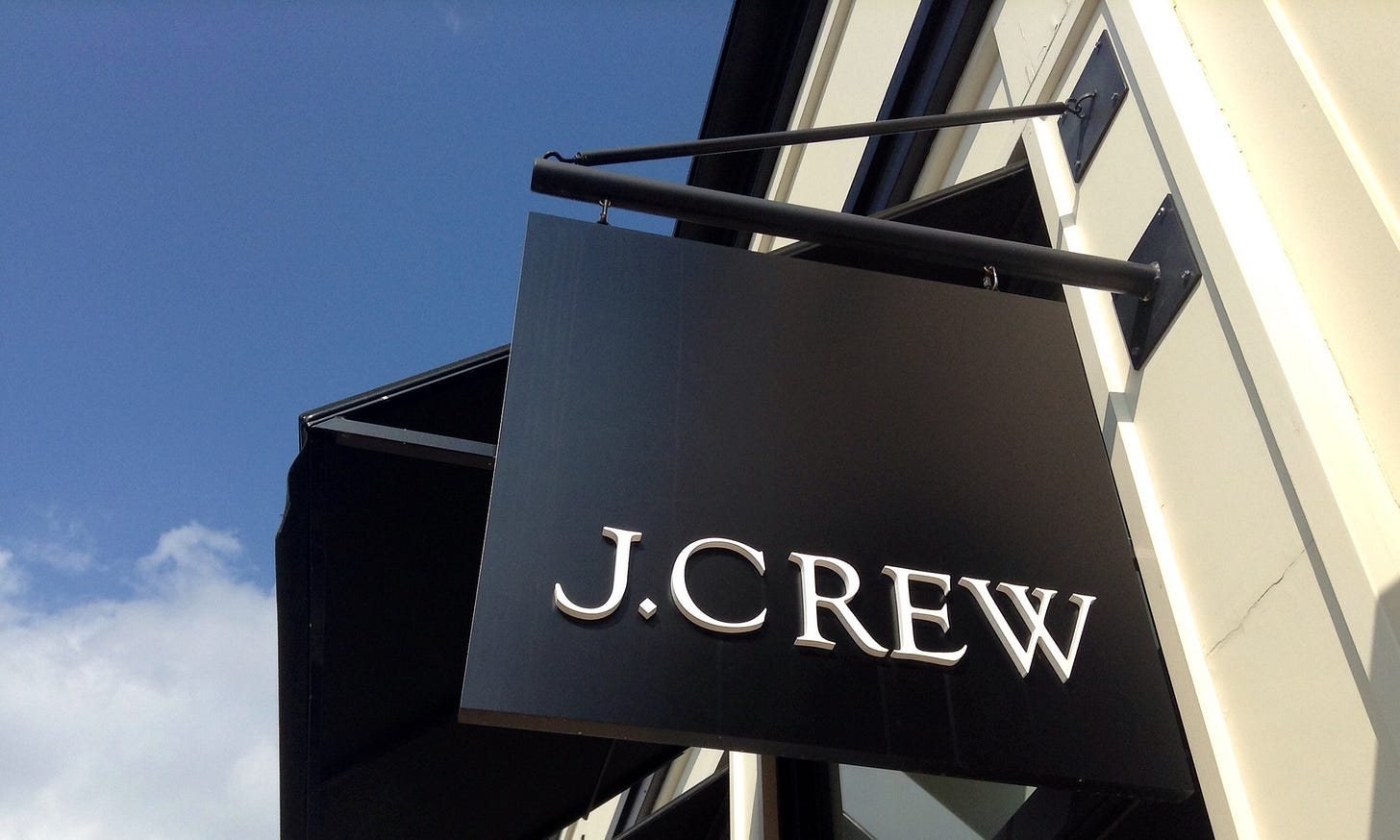Left Holding the Shopping Bag
Big retailers are going under, and local governments could be stuck with the bill.

If you end up enjoying this post, please share it by clicking the green button below. Thanks!
The coronavirus retail bankruptices have begun. First it was J. Crew. Then Neiman Marcus. And more are on the way.
To be clear, while coronavirus is certainly keeping people from in-person shopping, these failures were a long time coming. J. Crew and Neiman Marcus were saddled with a bunch of debt by private equity firms, just like Sports Authority, Payless, and Toys R Us before them. Those firms strip-mined the stores’ assets while paying themselves large fees and dividends, leaving behind retail husks that couldn’t deal with the sudden shock of a pandemic.
Private equity looting has caused the loss of nearly 600,000 retail jobs in the last decade, according to a 2019 study, which rises to 1.3 million when suppliers are included.
What does any of this have to do with your tax dollars, you may ask? Well, as I explained in my book, even as the rise of internet commerce was shaking the foundation of the retail industry, cities all over the country made large bets on big, legacy retailers. They funded the construction of mega-malls and their department store anchors, exempted big box stores from property taxes, and gave free money to big sporting goods outlets because they were supposedly a tourist attraction.
Even before the pandemic, that was all looking like a bad bet, because of the so-called retail apocalypse driven by online shopping. Coronavirus accelerating said apocalypse is making it all look worse.
When cities and states look to juice business via some retail therapy, they almost inevitably turn to a big national retailer or real estate developer, even though smaller outlets help build more resilient local economies. And it certainly didn’t matter that some big shops were being run by private equity firms more interested in a quick payout than a real investment: Both J. Crew and Neiman Marcus’ private equity owners, TPG Capital and Ares Management respectively, won public subsidies for their stores.
In many cases, the funds dedicated to big retail were raised by issuing bonds that are still being paid off. Cities like to use what’s known as a TIF — for tax increment financing — which dedicate a portion of the revenue raised within a specific geographic area toward bond payments, or simply state that some portion of sales taxes collected at a store will pay off those bonds.
Now, thanks to the pandemic, that revenue has evaporated, and some of the stores will close forever. So cities will be left holding the bag, figuratively speaking, scrambling to find new ways to pay off their obligations.
Some of the shopping deals cities made were just silly: For instance, there’s no reason to think that a over-the-top mall in a swamp in New Jersey is a good public investment. Some were compounded by federal actions: Once the federal government (for some reason) blessed the merger of Bass Pro Shops and Cabela’s, the two main players in the big, outdoor sports store space, communities that had paid to help build one or the other saw their shop close so it wouldn’t compete with another one down the highway.
It’s all a rip-off for taxpayers.
That big retail is a big deal to the economy is a myth built by powerful retailers with little data to support it. Internet shopping made that even more true, and then coronavirus dealt a new blow. So on the far side of the pandemic, cities need to avoid buying into the inevitable efforts to go right back to business as usual.
One more thing: Just when you think the story of Indianapolis’ secret bid to win Amazon’s HQ2 can’t get any worse, it does!

Thanks for reading this edition of Boondoggle. If you liked it, please take a moment and click the little heart under the headline or below. And forward it around to friends, family, or neighbors using the green buttons. Every click and share really helps.
If you don’t subscribe already and you’d like to sign up, just click below.
Finally, if you’d like to pick up a copy of my book, The Billionaire Boondoggle, go here.
Thanks again!
— Pat Garofalo



Anyone know the status of the Kroger class action suits over widespread paycheck errors?